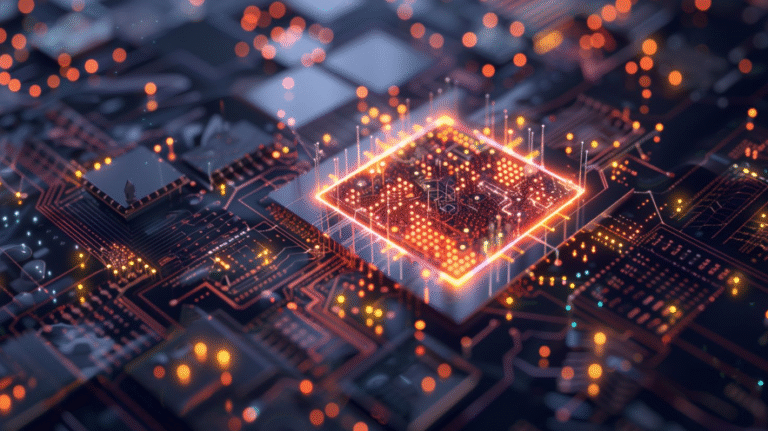1. What Is 5G Technology?
5G (fifth generation) is the latest advancement in mobile network technology, succeeding 4G (LTE). While 4G revolutionized mobile communications by improving speed and reliability, 5G promises to take connectivity to new heights, offering ultra-fast internet speeds, ultra-low latency, and the ability to support a massive number of devices simultaneously. This will enhance not only mobile experiences but also industries and everyday applications.
2. The Evolution from 4G to 5G
4G networks were a game-changer for mobile internet, allowing for quicker streaming, better browsing experiences, and smoother gaming. However, the growing demands for higher data transfer rates and more connected devices have reached the limits of 4G technology. Enter 5G: it will offer data transfer speeds that are 100 times faster than 4G, lower latency for real-time communications, and the ability to connect millions of devices in a small area. The leap from 4G to 5G is as significant as the jump from 3G to 4G.
3. Key Features of 5G
Blazing-Fast Speeds
5G is designed to offer speeds up to 100 times faster than 4G, which means quicker download and upload times, and more seamless browsing. This will allow users to download HD movies in seconds and experience uninterrupted video calls.
See also: The Future of Artificial Intelligence: Trends and Predictions for 2025
Low Latency
One of the most crucial features of 5G is its low latency, which is the time it takes for data to travel from one point to another. 5G networks promise latency as low as 1 millisecond (ms), compared to the 30-50ms latency of 4G, making real-time communication and instant responses possible.
Massive Device Connectivity
5G is designed to handle up to 1 million devices per square kilometer, a dramatic improvement over 4G. This is particularly important for the growth of the Internet of Things (IoT), where everything from smart appliances to wearable devices needs to be interconnected.
4. How 5G Will Transform Consumer Experience
Faster Internet for All
With 5G, consumers will experience dramatically faster internet speeds, making streaming, downloading, and browsing smoother. Whether at home, on the go, or in the office, access to high-speed internet will become more reliable and faster than ever.
Improved Streaming Quality
Thanks to the high bandwidth of 5G, streaming 4K and even 8K videos will be possible without buffering. The enhanced speed and quality will transform entertainment experiences, especially on mobile devices and smart TVs.
Enhanced Gaming Experiences
5G will significantly enhance mobile gaming by offering low latency and fast speeds. Cloud gaming, in particular, will become a reality, as gamers can play graphically-intensive titles without needing powerful hardware locally, thus leveling the playing field.
5. Impact of 5G on Industries
Healthcare
5G will be a game-changer for healthcare by enabling telemedicine, real-time remote surgeries, and continuous health monitoring. Doctors will be able to remotely assist patients with high-definition video calls and monitor vital signs in real-time.
Manufacturing
In manufacturing, 5G will support smart factories where machinery, robots, and systems communicate seamlessly. Real-time data collection and analysis will improve efficiency, reduce downtime, and increase automation in production lines.
Transportation and Smart Cities
5G will enable smart transportation systems, making autonomous vehicles safer and more reliable. Traffic management systems will become more efficient, reducing congestion, and public services will improve with better communication and integration.
Retail and E-Commerce
Retailers will leverage 5G for a more personalized shopping experience, offering augmented reality (AR) try-ons, seamless payments, and quicker delivery. E-commerce businesses will benefit from enhanced customer interactions and optimized logistics.
6. 5G and the Internet of Things (IoT)
5G will fuel the rapid expansion of IoT, which connects everything from home appliances to industrial machines. With the ability to connect millions of devices in a small area, 5G will enhance automation, reduce operational costs, and increase efficiency across various sectors.
7. How 5G Will Enable Autonomous Vehicles
Autonomous vehicles rely heavily on fast communication between the vehicle, road infrastructure, and other vehicles to make real-time decisions. With 5G’s ultra-low latency and fast speeds, self-driving cars will be able to operate safely and efficiently, reducing the risk of accidents and improving traffic flow.
8. 5G’s Role in Smart Homes and Cities
5G will power smart homes, allowing everything from lights and thermostats to security systems to be controlled remotely. In smart cities, 5G will enable better public services, such as waste management, energy distribution, and traffic monitoring, making urban life more efficient and sustainable.
9. The Impact of 5G on Mobile Devices
Mobile devices will benefit from 5G with faster internet access, better battery life, and improved processing power. As more devices become 5G-enabled, users will experience faster downloads, enhanced multimedia experiences, and better overall performance.
10. 5G and Augmented Reality (AR) / Virtual Reality (VR)
5G will unlock the full potential of AR and VR technologies. With its low latency and high bandwidth, users will be able to experience immersive gaming, virtual meetings, remote collaboration, and education with minimal lag and maximum realism.
11. Security Implications of 5G
While 5G offers many benefits, it also raises security concerns. With the increased number of connected devices, there will be more potential entry points for cyberattacks. However, 5G also introduces improved encryption and security protocols, making networks more secure.
12. Challenges in the Deployment of 5G
Despite its potential, the rollout of 5G comes with challenges, including the high cost of infrastructure, spectrum availability, and the need for new hardware. Additionally, rural areas may experience slower deployment than urban centers.
13. 5G and Environmental Sustainability
5G networks are expected to be more energy-efficient than their predecessors, helping to reduce the overall carbon footprint of mobile communication. Moreover, by enabling more efficient smart city systems and IoT devices, 5G can contribute to sustainable urban living.
14. The Global Race for 5G Dominance
Countries like China, the United States, and South Korea are in a race to lead the world in 5G deployment. The economic and strategic advantages of being at the forefront of 5G adoption are immense, from driving innovation to maintaining geopolitical influence.
15. How 5G Will Influence Education and Remote Learning
5G will revolutionize education by making online learning faster and more interactive. Students will be able to access high-quality, immersive virtual classrooms, and teachers can use AR and VR to deliver more engaging lessons.
16. The Role of 5G in Cloud Computing
5G will enhance cloud computing by providing faster data transfer speeds and lower latency. This will make cloud-based applications more responsive and capable of handling more complex tasks, benefiting both consumers and businesses.
17. What You Need to Know About 5G Speed and Coverage
5G speeds are incredibly fast, but actual performance depends on your location and network coverage. Urban areas will see faster speeds, but rural areas may experience limited or delayed 5G deployment. It’s important to check your provider’s coverage map to know when 5G will be available in your area.
18. Cost Considerations for Consumers and Businesses
Although 5G offers tremendous potential, the cost of upgrading to 5G-enabled devices and infrastructure can be significant. As adoption increases, however, the costs will likely decrease, making 5G more affordable over time.
19. Future Trends in 5G Technology
The future of 5G will likely see advancements in edge computing, more AI-driven applications, and improved 5G speeds through innovations like millimeter-wave technology and network slicing.
20. Global 5G Networks: Which Countries Are Leading?
South Korea, China, and the United States are leading the charge in 5G adoption, with extensive 5G networks already operational. Many other nations are also investing in their 5G infrastructure to remain competitive on the global stage.
21. How 5G Will Support Emerging Technologies
5G will empower emerging technologies such as artificial intelligence (AI), blockchain, and robotics by providing the high-speed data transfer and low-latency communication required for their optimal performance.
22. The Impact of 5G on Digital Marketing and Advertising
Marketers will use 5G’s speed and capabilities to offer more personalized and interactive advertisements. Real-time data analytics will allow businesses to target consumers more effectively, delivering ads at the right moment and in the right format.
23. What Businesses Need to Do to Prepare for 5G
Businesses need to upgrade their infrastructure, adapt to the latest technologies, and ensure they are ready for the opportunities 5G offers. This includes adopting IoT, cloud services, and other technologies that will be powered by 5G.
24. Debunking Common Myths About 5G
There are several misconceptions about 5G, from its impact on health to its role in causing widespread electromagnetic pollution. In reality, 5G is both safe and necessary for the future of connectivity.
25. Conclusion: The Future of 5G and What’s Next
5G is more than just a faster internet connection. It’s a technological evolution that will enable smarter cities, more immersive experiences, and new business models. As 5G networks continue to roll out, the digital world will undergo a transformation that will impact everything from everyday communications to global industries. The future is fast, and it’s powered by 5G.
FAQs
1. What is the main benefit of 5G technology?
The primary benefit of 5G is its ultra-fast data speeds, which enable quicker downloads, smoother streaming, and real-time communication, while also supporting the growing number of connected devices.
2. When will 5G be available in my area?
5G deployment is happening in phases, with urban areas often receiving coverage first. Rural areas may experience a delayed rollout. Check with your local mobile provider for more details.
3. Will 5G make my phone faster?
Yes, 5G will make your phone faster by providing higher data speeds and better overall network performance, especially for data-heavy applications like gaming and streaming.
4. Is 5G safe?
Yes, 5G technology is safe. It adheres to international safety standards and has been extensively tested for health impacts.
5. What industries will benefit the most from 5G?
Industries such as healthcare, manufacturing, transportation, and retail will see the most significant benefits from 5G, enabling innovations in automation, smart devices, and connected services.



